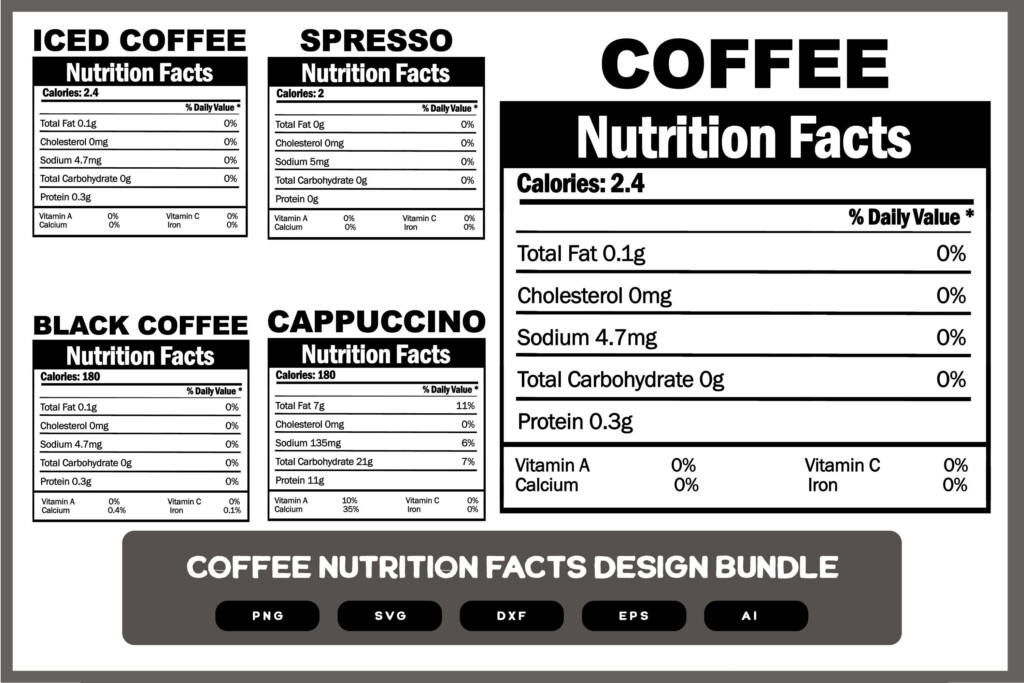Coffee is one of the most popular beverages in the world, enjoyed by millions of people every day. In addition to its delicious taste and energizing effects, coffee also offers a number of health benefits. One of the main reasons people drink coffee is for its caffeine content, which can help improve focus, alertness, and physical performance. Coffee also contains a number of antioxidants, which can help protect the body from damage caused by free radicals. Additionally, some studies suggest that coffee may help reduce the risk of certain diseases, such as Parkinson’s and Alzheimer’s.
A typical cup of black coffee contains very few calories, with about 2 calories per 8-ounce cup. However, the nutritional content of coffee can vary depending on how it’s prepared. Adding sugar, cream, or flavored syrups can significantly increase the calorie content of your coffee. For example, a medium-sized latte with whole milk and sugar can contain over 200 calories. It’s important to be mindful of how you prepare your coffee to avoid consuming excess calories and sugar.
Coffee Nutrition Information
Health Risks of Coffee
While coffee offers a number of health benefits, it’s also important to be aware of potential risks associated with excessive consumption. Some people may experience negative side effects from drinking too much coffee, such as increased heart rate, anxiety, or digestive issues. Additionally, consuming too much caffeine can disrupt sleep patterns and lead to insomnia. It’s recommended to limit your coffee intake to no more than 400 milligrams of caffeine per day, which is roughly equivalent to 4 cups of coffee.
